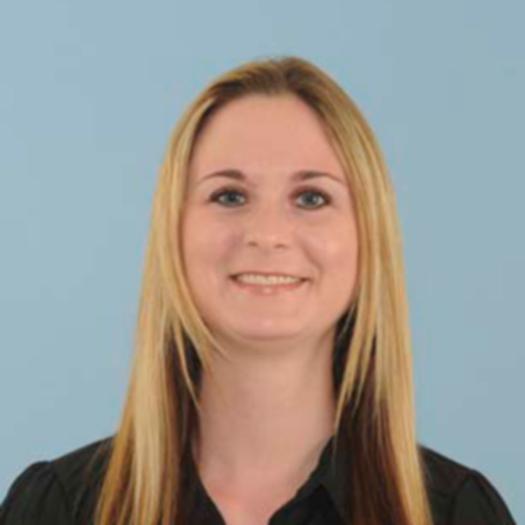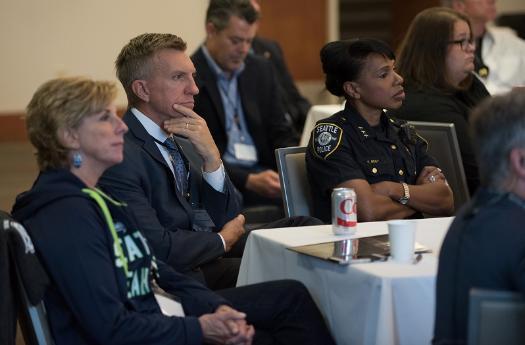
Degree Requirements
Online Master's in Criminal Justice Degree Requirements
This two year 55-credit program combines core, elective and specialized courses to allow students to engage in diverse curriculum. Through classes such as, "Criminal Justice Legislation & Policy," "Investigative Criminology and Offender Profiling," "Contemporary Issues in Victimology" - and more, students will become well-rounded criminal justice professionals.
Credit Breakdown (55 Credits Total)
-
Foundation Courses (31 Credits)
-
Foundation Courses (11 Courses Required) 31 Credits Criminal Justice Theory 3 Credits Advanced Criminological Theory 3 Credits Law and Social Control 3 Credits Advanced Research Methods in Criminology and Criminal Justice 3 Credits Organizational Theory and Analysis in Criminal Justice 3 Credits Criminal Justice Ethics and Decision Making 3 Credits Statistical Analysis 3 Credits Statistics Lab 1 Credit Theory and Research in Policing, Courts and Corrections 3 Credits Critical Criminology 3 Credits Criminal Justice Capstone Seminar 3 Credits -
Elective Courses (24 Credits)
-
Elective Courses (8 Courses Required) 24 Credits Criminal Justice Legislation and Policy 3 Credits Qualitative Research Methods in Criminology and Criminal Justice 3 Credits Investigative Criminology and Offender Profiling 3 Credits Typologies of Crime and Criminal Behavior 3 Credits Theories and Techniques of Crime Scene Investigation 3 Credits Crime Analysis 3 Credits Contemporary Issues in Victimology 3 Credits Violence and Victimization 3 Credits Restorative/ Community Justice 3 Credits Crime Mapping 3 Credits Restorative Justice: Behind Bars 3 Credits Special Topics 1-5 Credits Thesis 1-3 Credits Issues in Contemporary Law Enforcement 3 Credits Punishment and Social Theory 3 Credits Terrorism and Homeland Security 3 Credits The Psychopath 3 Credits Forensic Anthropology 3 Credits Crime Scene and Medicolegal Death Investigation 3 Credits Murders, movies and Copycat Crime 3 Credits -
Intersectional Electives (Counts Towards Elective Requirement)
-
Course Credits Fundamental Counseling Skills (Counseling) 4 Credits Counseling Theories (Counseling) 3 Credits Multicultural and Social Justice Counseling (Counseling) 4 Credits Public Budgeting (Public Administration) 3 Credits Administrative Law (Public Administration) 3 Credits -
Practicum and Internship Electives (Counts Towards Elective Requirement)
-
Practicum/ Internship Credit US Marshals Practicum 1 Credit DEA Practicum 1 Credit ATF Practicum 1 Credit Forensics Practicum 1 Credit Trial Skills Practicum 1 Credit FBI Practicum 1 Credit Internship 1-3 Credits Independent Study 1-3 Credits Teaching Assistantship 1-3 Credits Research Assistantship 1-3 Credits
Specialized Tracks
Dive deeper into Victimology, Investigative Criminology or Research and Evaluation. Each specialized track consists of 4 elective courses, contributing to the 8 required elective courses needed to complete the program.
| Victimology | Investigative Criminology | Research and Evaluation | |
|---|---|---|---|
| Specialization Courses | Trafficking | Crime Analysis | Criminal Justice Legislation & Policy |
| Violence and Victimization | Typologies of Crime and Criminal Behavior | Qualitative Research Methods in Criminology & Criminal Justice | |
| Contemporary Issues in Victimology | Investigative Criminology and Offender Profiling | Typologies of Crime and Criminal Behavior | |
| Restorative/ Community Justice | Theories and Techniques of Crime Scene Investigation | Violence and Victimization | |
| Foundation Courses | 11 Courses; 31 credits | ||
| Additional Elective Courses | 4 Courses; 12 credits | ||
| Total Credits | 55 credits | ||
| Request Information |
|---|
Meet your Admissions Counselor

Criminal Justice Advisory Committee
The Advisory Committee consists of professionals who work within the Washington State criminal justice system. Annually the Advisory Committee meets with the Criminal Justice department to review program developments as well as provide insights into:
- Employment trends
- Internship opportunities
- Community connections

Kelli Glasgow SU'09
"The program was outstanding and provided an exceptional college experience with transferable knowledge to my career. The faculty helped facilitate an internship in my field of interest, and offered a career fair that enabled me to connect directly with the FBI where I was recruited for my current position."
Glasgow now serves on the Criminal Justice Advisory Board as an FBI representative.
We prepare our graduates to advocate for reform within and beyond the criminal justice system and to lead for justice, fairness and equality.
You'll engage in the course Critical Criminology, a core course in our curriculum, to learn how to deconstruct scientific thinking, language and theoretical perspectives that have perpetuated oppression and power relations of injustice.
